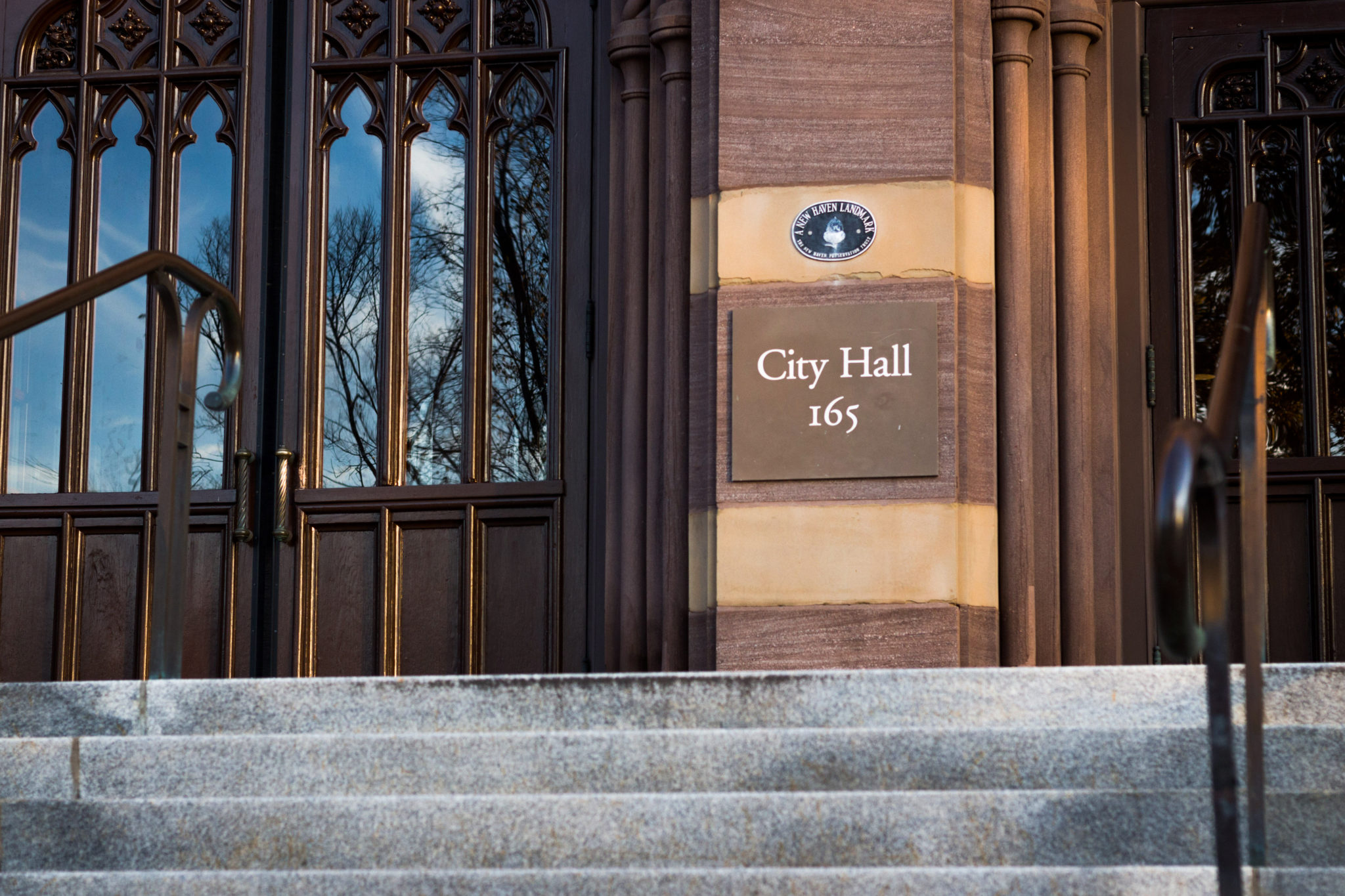
Daniel Zhao
After five of the 11 nominees for the Civilian Review Board were nearly unanimously voted down, community members have mixed feelings regarding the process of the board’s establishment.
Last January, the Board of Alders passed a resolution to establish a civilian review board to address police brutality and accountability. Following its passage, New Haven’s 12 community management teams — neighborhood teams formed to exchange information and discuss local issues — were given 90 days to collect and send in nominees for the Board’s membership.
The nomination process includes three stages of review. First, the community management teams submit their nominations to City Hall. Then, the mayor interviews candidates and makes recommendations to the Board of Alders. Lastly, the Board of Alders holds a public hearing and votes to confirm candidates.
For example, the Downtown Wooster Square community management team asked for a one-page letter from candidates describing their interest, as well as their background, experiences and any knowledge they would bring to the CRB. The management team put out a list of responsibilities for a potential member, including making reports at regular meetings of the Community Management Team and committing to keeping sensitive materials confidential.
Caroline Smith, Wooster Square community management team chair, told the News on Tuesday that her team often heard “inconsistent messages” about the team’s role in choosing the nominees. Smith said the mayor’s office told the management teams to select one nominee, while the Alders said the community groups were not meant to deliberate but simply collect and pass along all names to City Hall.
The Downtown Wooster Square team submitted three names to the Mayor’s office in an unranked list: Steve Hamm, Elizabeth Larkin and Alex Taubes. Mayor Toni Harp accepted Hamm’s nomination, but the Board of Alders later rejected the nomination.
Since the Board of Alders’ rejection of her community management team’s nominee, Smith said that she is “unclear” about the next steps in the process, and has already reached out to City Hall.
She said that if the next step for the Mayor’s Office is to choose between the Downtown Wooster Square’s two other candidates — Taubes and Larkin, who were not nominated by Harp — she would “like clarity on the criteria that will be used to guide their decision.”
Mayoral Spokesman Laurence Grotheer told the News this week that the management teams would have to make new recommendations if their police district’s candidate was rejected. He said that there were no other recommendations from the district, noting how all 10 police districts must be represented on the civilian review board.
Ward 29 Alder Brian Wingate told the News on Thursday that the mayor will be re-sending nominees back to the Board. He said that he does not know how or when the Mayor is going to re-choose candidates.
Some people on community management teams are not as concerned with communication between their groups, the Board of Alders and Harp. However, they are wary that the new board will not be reflective of the city’s diverse population — a feature of the board required by the official ordinance. Anstress Farwell, the Downtown Wooster Square team executive board member at large, told the News on Tuesday that City Hall needs to “consider the whole dimension of the new board and look to create diversity and balance.” For example, she said that legislators must attempt to have people from all political parties on city Boards and Commissions.
Hamm — a documentarian and journalist, as well as the mayor’s nominee from Downtown Wooster Square — faced strong criticism from community activists during a July 22 public hearing with the Board of Alders. Community members accused him of lacking an understanding of structural racism and criticized his “centrism,” among other concerns. Activists who spoke out against his candidacy included Kerry Ellington, an organizer with People Against Police Brutality — one of the most prominent groups fighting for the establishment of a robust civilian review board.
Hamm told the News that he believes the process was politically prejudiced against him, and that the Board of Alders was influenced by the opinion of activists who he characterized as not “believ[ing] in policing.”
“None of the standard City criteria are, or should be, or can be (legally), an ideological litmus test,” Farwell wrote to the News. “The City needs to stay away from the legal and moral tarpit of prejudgement — which is what a litmus test would entail.”
Farwell said that she personally agreed with the observations recently made by Emma Jones, who has led the movement to create a civilian review board after her son, Malik Jones, was chased, shot and killed by the East Haven police in the 1990s.
At the Aug. 6 Board of Alders vote for CRB membership, Jones said that she wanted a “variety and diverse group of people who understand how to work with other people, and be fair to the process.”
“If we put everybody on the board who looks alike, who thinks alike, we may end up in more trouble than we bargained for,” Jones said.
Aaron Goode, a downtown e-board member, said that there are kinks that need to be worked out when implementing the CRB ordinance. However, he said that working out these kinks is a “feature, not a bug” of the “progressive experimentation process.”
“[Public policy] should be a laboratory for progressive experimentation, and sometimes that looks disorganized, messy, even chaotic,” Goode said.
Harp nominated 11 Elm City residents to the Civilian Review Board.
Sammy Westfall | sammy.westfall@yale.edu .







